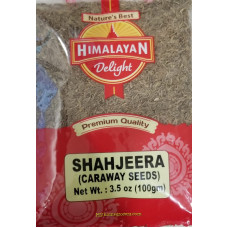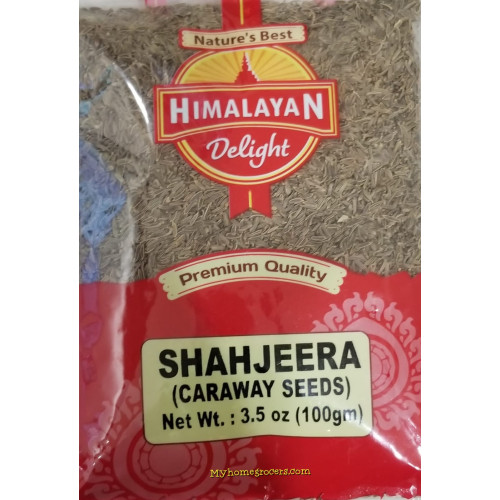SHAHI JEERA HIMALAYAN DELIGHT - 100 GMS / 3.5 OZ
OverView
Shahi Jeera is used extensively in medicines and in cooking too. This is darker and tastes little sweeter than normal jeera. It is used mainly in Tandoori dishes and in some specific Indian curries. Shahi jeera is also used as...- ANAND SNACKS MIX AND MATCH OFFER
- Batters, Dairy & Poultry
- Beverages
- Breakfast Cereals
- BUY ANY 2 DAKSHIN EXPRESS SNACKS FOR $0.99
- Food Grains, Oils & Masala
- Fresh Made Food
- Frozen
- Fruits & Vegetables
- Meat
- PARAMPARA MASALA'S MIX AND MATCH OFFER
- Personal & Home Care
- Pooja & Festival Items
- SHAN MASALA MIX AND MATCH
- Snacks
- SPORTING GOODS & MISC.
- Sports & Miscellaneous
- Sweets & Dry Fruits
- TELUGU MASALAS AND READY TO EAT POWDERS MIX AND MATCH OFFER
- TELUGU SNACKS MIX AND MATCH
Your shopping cart is empty!
Product Description
Shahi Jeera is used extensively in medicines and in cooking
too. This is darker and tastes little sweeter than normal jeera. It is used
mainly in Tandoori dishes and in some specific Indian curries. Shahi jeera is
also used as an ingredient of masala tea, owing to its sweet flavor. This is
the uncommon spice variously called shahi jeera, black cumin, Kashmiri jeera,
Himali jeera, Koshur zur, or kala jeera. Shahi means royal or fit for a king.
Shah is a word of Persian derivative and means high king. If you add an
"i" to the end of any Hindi or Urdu noun it becomes an adjective.
Jeera (or zeera in Urdu) means cumin and is a word of Persian origin meaning
fragrant or of pleasant aroma. So "shahi jeera" translates to
"royal cumin."
The shahi jeera or black cumin plant (Bunium persicum) is
native to northern India and Central Asia. It prefers the dry, scrubby slopes
of the Himalayas or the mountains of Central Asia. It is a perennial plant that
grows to two feet in height. What looks like seeds are actually the tiny fruits
of Bunium persicum. The roots are also cooked and eaten eaten in Kashmir and
have the taste of sweet chestnuts.
The flavor of shahi jeera/black cumin seeds is very similar
to the earthy notes of cumin but somewhat milder, sweeter. It also has a bit of
herbaceous note and a mildly astringent tang. When cooked the flavor becomes
slightly nutty and will not overpower a dish with earthiness as cumin can do.
Helpful hints:
A good substitute for shahi jeera just would be cumin in a
lesser amount. Cumin is closest in flavor to shahi jeera but
much stronger. Do NOT use caraway seeds or nigella/kalonji as they
have entirely different flavor.




